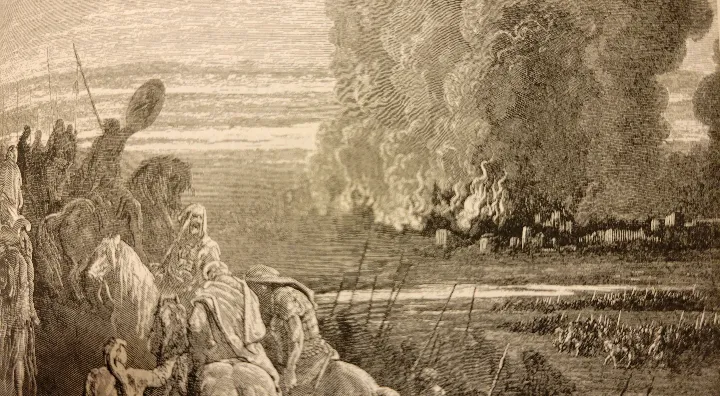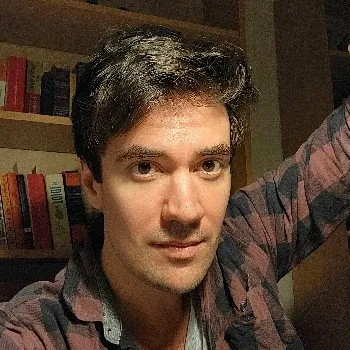Heavenly Kingdoms - Chapter 11
From John Charleston to Arthur Cromsley, 16th of March, 1855
Dear Arthur,
It's been one year since my Helen died and I've not heard a word out of your ungodly mouth. It used to be I had some clout with you. It seems I saved your life once upon a time on the on Chinese waters back when opium and adventure was our primary currency, yet as time goes on we drift apart and you forget your friends. I've grown churlish; my daughter has retreated and is living with her aunt. My son... I snap at him; I blame him for everything and he is growing to resent me, but if you knew the pain that losing Helen has caused me you would take pity. Yet you do not come to visit me. You do not send a letter. You do nothing that an old friend should do.
The bond of comrades in war is something supposedly strong and nigh eternal, and yet time has proved this false. You are a false friend Arthur. And yet I admonish you without knowing your circumstances. But how can I when I receive no communications? I assume you still live; I have heard nothing to the contrary. If you do I would welcome even the smallest message to indicate your health and modicum of love that an old friend should supply.
Better still that you come and see me. My house is welcome should you wish to visit. I will not turn you away, even with the harsh words I have just spoken to you. Such is simply my nature now. Do not take it personally. I grow more cantankerous with each passing day. But my son sulks when I berate him, and retreats from me, but I know you can handle such an attitude and give back as good as is given. We are harder men from harder times. We’ve faced the infinite orientals and returned.
And thus, I would greatly appreciate your company, at this time in my mourning. I need someone hard, harsh; who knows the pain of the world to reflect the pain within me and turn it into ribaldry as you were always so good at. Do you remember the time I caught that shower of splinters in the leg on the Calliope? I’d moaned of never walk again; that the surgeon would be sure to amputate. But you made light what was to me all the world and I hated you for it one instant then laughed like a madman the next. I thank you for it in my memories. If such are true.
I know that Helen disapproved of you and always spoke against you, so you were not able to stay at our home lest your prodigal ways “infect” our children, but she is gone now. My children have abandoned me, one truly and the other in spirit, and thus your influence can no longer affect them. Not that I cared that much, but my love and respect for Helen was such that any opinion she held I had to hold myself as the highest form of wisdom. This was not obsequiousness, as you would no doubt quip. I revered her and she never led me astray. Yet now that she is gone I see no reason to hold to such wisdom. For I am a broken man and have no further to be led down the dark path.
Send word or send yourself.
Your old friend,
John Charlston
From Margaret Playford to Caroline Playford, 13th of August, 1859
Dear Caroline,
You should be somewhat used to the black nature of these letters by now so I will not...
Dear Arthur,
It's been one year since my Helen died and I've not heard a word out of your ungodly mouth. It used to be I had some clout with you. It seems I saved your life once upon a time on the on Chinese waters back when opium and adventure was our primary currency, yet as time goes on we drift apart and you forget your friends. I've grown churlish; my daughter has retreated and is living with her aunt. My son... I snap at him; I blame him for everything and he is growing to resent me, but if you knew the pain that losing Helen has caused me you would take pity. Yet you do not come to visit me. You do not send a letter. You do nothing that an old friend should do.
The bond of comrades in war is something supposedly strong and nigh eternal, and yet time has proved this false. You are a false friend Arthur. And yet I admonish you without knowing your circumstances. But how can I when I receive no communications? I assume you still live; I have heard nothing to the contrary. If you do I would welcome even the smallest message to indicate your health and modicum of love that an old friend should supply.
Better still that you come and see me. My house is welcome should you wish to visit. I will not turn you away, even with the harsh words I have just spoken to you. Such is simply my nature now. Do not take it personally. I grow more cantankerous with each passing day. But my son sulks when I berate him, and retreats from me, but I know you can handle such an attitude and give back as good as is given. We are harder men from harder times. We’ve faced the infinite orientals and returned.
And thus, I would greatly appreciate your company, at this time in my mourning. I need someone hard, harsh; who knows the pain of the world to reflect the pain within me and turn it into ribaldry as you were always so good at. Do you remember the time I caught that shower of splinters in the leg on the Calliope? I’d moaned of never walk again; that the surgeon would be sure to amputate. But you made light what was to me all the world and I hated you for it one instant then laughed like a madman the next. I thank you for it in my memories. If such are true.
I know that Helen disapproved of you and always spoke against you, so you were not able to stay at our home lest your prodigal ways “infect” our children, but she is gone now. My children have abandoned me, one truly and the other in spirit, and thus your influence can no longer affect them. Not that I cared that much, but my love and respect for Helen was such that any opinion she held I had to hold myself as the highest form of wisdom. This was not obsequiousness, as you would no doubt quip. I revered her and she never led me astray. Yet now that she is gone I see no reason to hold to such wisdom. For I am a broken man and have no further to be led down the dark path.
Send word or send yourself.
Your old friend,
John Charlston
From Margaret Playford to Caroline Playford, 13th of August, 1859
Dear Caroline,
You should be somewhat used to the black nature of these letters by now so I will not...




